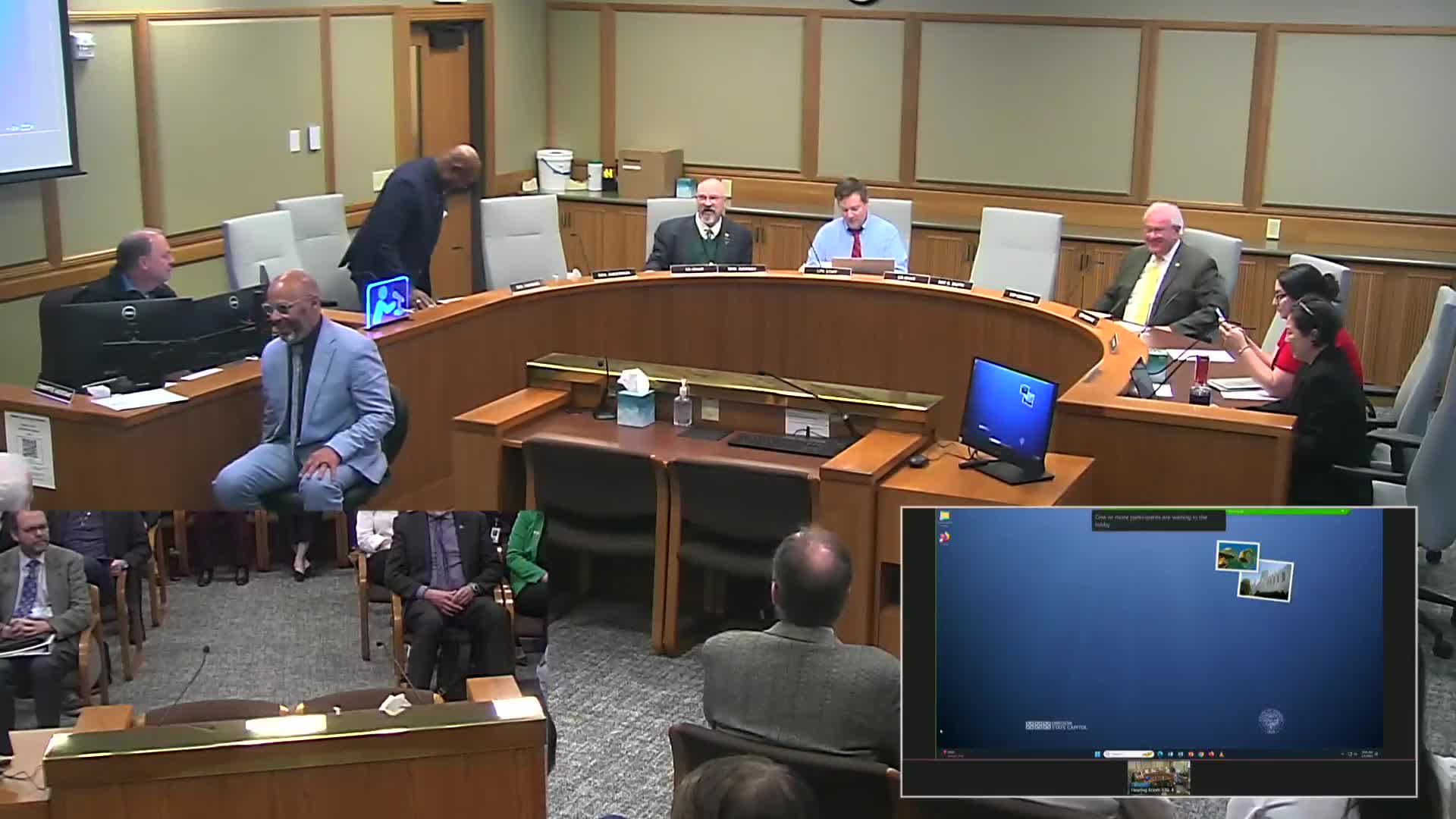Oregon lawmakers, staff and legislative agencies press Ways and Means for year‑round funding for LA‑2 positions
Get AI-powered insights, summaries, and transcripts
Subscribe
Summary
The General Government Subcommittee held a public hearing May 1 on House Bill 50 16 and related staffing requests, with lawmakers, legislative staff and the legislature’s service agencies urging funding to retain year‑round LA‑2 positions and bolster agency capacity.
The General Government Subcommittee held a public hearing May 1 on House Bill 50 16 and related legislative staffing requests, with lawmakers, legislative staff and the legislature’s service agencies urging funding to retain year‑round LA‑2 positions and bolster agency capacity.
Why it matters: Legislators and staff said volatile part‑time staffing disrupts constituent service, raises turnover and reduces the legislature’s ability to oversee agencies and develop policy between sessions. Legislative Council and the Legislative Policy and Research Office (LPRO) told the committee their workloads and responsibilities have increased and outlined specific position and technology requests intended to preserve institutional knowledge and meet demand.
Representative Mark Gamba of House District 41 opened public testimony by saying the staffing issue “in some ways seem[s] really small and insignificant, and in other ways are actually kinda pivotal,” arguing that insufficient staff pushes legislators to lean on lobbyists and limits the time members can spend digging into policy. Multiple other legislators — including Senator Deb Patterson (District 10), Senator Floyd Prozanski (District 4), Senator Lou Frederick (District 22), Representative Cyrus Javidy (House District 32), Representative Leslie Munoz (House District 22), Representative Travis Nelson (House District 44) and Representative Courtney Neron (House District 26) — told the committee that their offices need more stable, year‑round staff to serve constituents, manage interim work and avoid burnout.
Legislative staff described how the current funding model creates employment instability. Andrew Hall, an LA‑2, said his FTE changed seven times over two years and that constant onboarding and schedule changes “have real costs for the effectiveness of the body and for the people of Oregon.” Caleb Hayes, chief of staff to Representative Zach Hudson, testified that chiefs of staff cut their own hours to keep LA‑2s employed and said, “Funding year round LA2 staffing will lead to better constituent service, a fair employment situation for us, and real government accountability that will save the state money.”
Staff testified with office‑level data. Megan Way, chief of staff for Senate District 10, said her office opened 188 constituent‑service cases in 2024, of which 164 occurred during the interim, and said those figures illustrate why year‑round LA‑2 capacity matters for timely responses. Nathan Stultz, representing the Legislative Staffers Union, IBAW Local 89, and other union members described staffing volatility as a central bargaining issue.
Legislative service agencies briefed the committee on capacity and specific budget asks. Dexter Johnson of Legislative Council said the office met customer satisfaction goals but warned that staffing and compensation losses were driving departures; he placed the office’s current service‑level general fund budget at about $22.4 million. Johnson said attorneys on his staff average roughly 270–300 bill drafts each in a biennium and that opinions and research requests are time‑consuming.
Oliver Joppers, deputy director of the Legislative Policy and Research Office, summarized LPRO work and its request for additional staff. LPRO said it produced roughly 1,500 staff measure summaries by First Chamber deadline, staffed six interim task forces that met 72 times, and expanded language access (American Sign Language provided automatically at committee meetings and simultaneous Spanish interpretation at selected committees). Joppers described a policy option package asking for multiple new positions: a principal research analyst and an administrative assistant for language access; three committee‑services positions (a principal legislative analyst and two legislative analysts); one senior committee assistant; and an additional Spanish interpreter, among other baseline requests to replace limited‑duration hires.
Committee members asked procedural questions about how to add staffing through amendments. Representative Tran asked how a member could propose an amendment adding FTE; staff replied that Legislative Counsel (LC) can draft the amendment and Legislative Fiscal Office (LFO) would calculate the fiscal impact. The committee recorded no vote on HB 50 16 during the hearing.
The hearing closed after committee members and staff emphasized the institution’s heavy interim and session workloads and the role of legislative staff in constituent services and policy development. Acting chair Gomberg and other members expressed support for further dialogue and asked staff and caucus leaders to consider amendment language and fiscal estimates.
Next steps: Committee members indicated they will seek draft amendments and fiscal estimates through Legislative Counsel and LFO; Legislative Council and LPRO requested that the committee consider their policy option packages to stabilize staffing and retain experienced staff.
